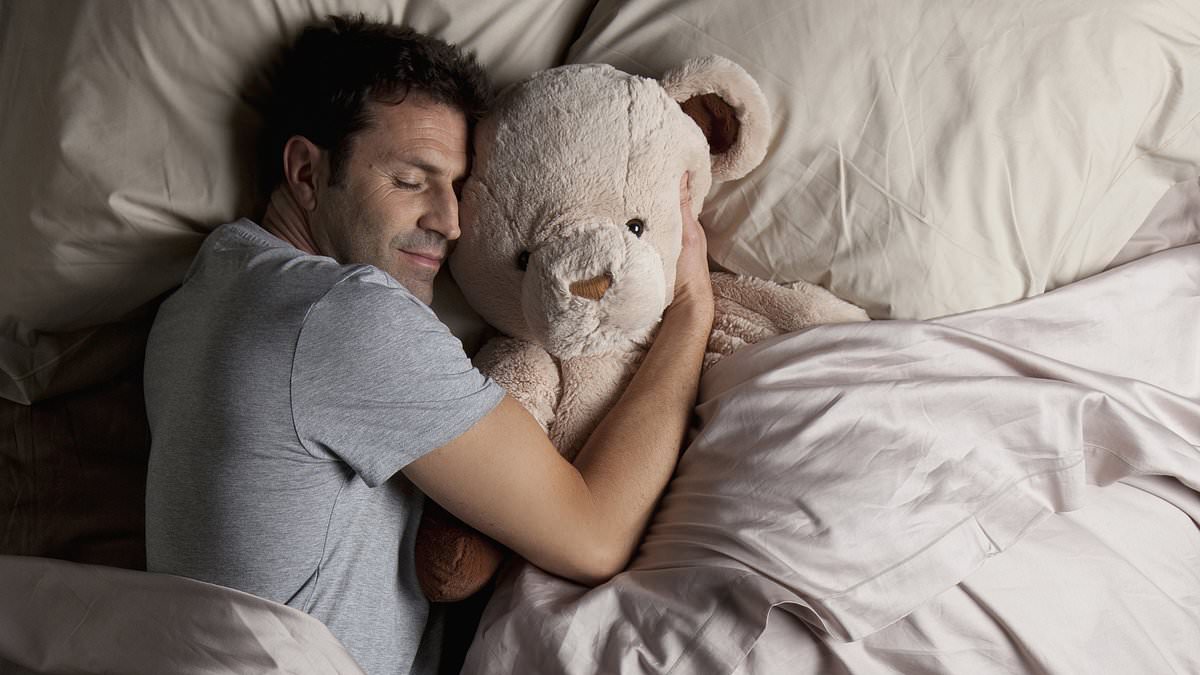Does it sometimes feel like your partner needs more parenting than your children?
Even if you don’t have kids, perhaps you’re always picking up after and organising your husband as if he were a teenager? If so, you may well have developed a parent/child dynamic in your relationship.
Although common, it isn’t good for a marriage, causing resentment as well as sapping passion.
Here, two experts reveal how this happens, the signs to watch our for – and how to move things back to a more grown-up affair.

In heterosexual relationships, men often fall into the child role due to long-standing societal and cultural norms, one expert reveals
What is a parent/child romantic relationship?
Psychologist Amanda Charles, author of The Psychic Psychologist, says: ‘It’s when one partner takes on a dominant, caregiving or controlling role – the ‘parent’, while the other becomes passive, dependent or submissive – ‘the child’.’
The parent role can take two forms: nurturing or critical.
‘The nurturing ‘parent’ offers emotional and practical support, while the critical ‘parent’ tends to take control through judgment, reproach or micromanagement,’ explains Amanda.
The critical ‘parent’ is often brought out by frustration at feeling that the ‘child’ partner isn’t pulling their weight, or measuring up when it comes to responsibilities.
‘This can create a cycle of control, where the person who has assumed the role of ’critical parent’ feels the need to manage every detail, often unknowingly stifling the ‘child’ partner’s growth,’ says Amanda.
‘This dynamic can become entrenched over time, with the parent partner growing increasingly resentful and overburdened while the child partner becomes more passive and reliant.’
All this can lead to frustration and anger, stifling a relationship, particularly in the bedroom, says counsellor Georgina Sturmer. ‘If we are feeling like either a child or a parent in our romantic relationships, then it might get in the way of us seeing our partner as attractive and wanting to feel intimate.’
Why are men so often the ‘child’?
‘In heterosexual relationships, men often fall into the child role due to long-standing societal and cultural norms,’ says Amanda.
Read More
How Brits are turning their back on 'gimmick' restaurants including TGI Fridays and Karen's Diner

‘Women have long been taught to internalise the role of caregiver from a young age, while men are raised to focus solely on providing financially.
‘Even now, many boys are socialised from an early age to avoid emotional vulnerability and domestic tasks, automatically leading on to an unconscious reliance on their partner for emotional care and the day-to-day running of the home in adulthood.’
It could also be that a couple who have fallen into a parent/child dynamic grew up in households where their own parents assumed those roles.
In some relationships, this entrenched thinking has not caught up with the times, even though it’s likely both partners are working equally hard outside the home.
How to tell if you are the ‘parent’
Despite working full time, are you managing everything from cooking and cleaning to childcare and grocery shopping – your partner, meanwhile, spending time ‘winding down’?
Do you handle the finances while your partner is uninvolved or irresponsible with money? When you ask for input on big decisions – a holiday choice, for example – do they show little interest, leaving you to shoulder the burden?
Does your partner turn to you after a difficult day at work, expecting comfort and guidance, but when you experience stress or emotional challenges, they struggle to offer the same level of support?
Do you feel as though you need to ‘fix’ or control aspects of your partner’s life, stepping in to manage their personal or professional challenges?
If the answer is yes to more than one of these, you may have taken on the parent role in the relationship, Amanda says.

Psychologist Amanda Charles, author of The Psychic Psychologist
How to become equal adults again
A frank talk is called for, with both partners talking about the impact of the other’s behaviour. But, vitally, do not fall into the parent/child role during this discussion by assuming the ‘parent’ is right and the ‘child’ is wrong.
‘The ‘parent’ must resist those default urges to nag, criticise and rescue,’ instructs Georgina. ‘Allow the ‘child’ to have autonomy and freedom, even if it might mean they make mistakes, or don’t do things as well as we would like.
‘This can be an uncomfortable process, as it might feel like we are having to relinquish a sense of control.’
Amanda agrees: ‘True change only occurs when the ‘child’ recognises there is an issue and decides to change.
‘Instead, if the ‘parent’ in the relationship focuses on altering their own role and interactions, a ripple effect can occur which indirectly encourages their partner to shift their behaviour, too.
‘When one person changes, it impacts the dynamic between both parties, prompting each partner to adapt and grow. By increasing their awareness of when they’re in a parental role and shifting to a neutral, adult stance, they create space for their ‘child’ partner to transition into their adult mode, too.’
